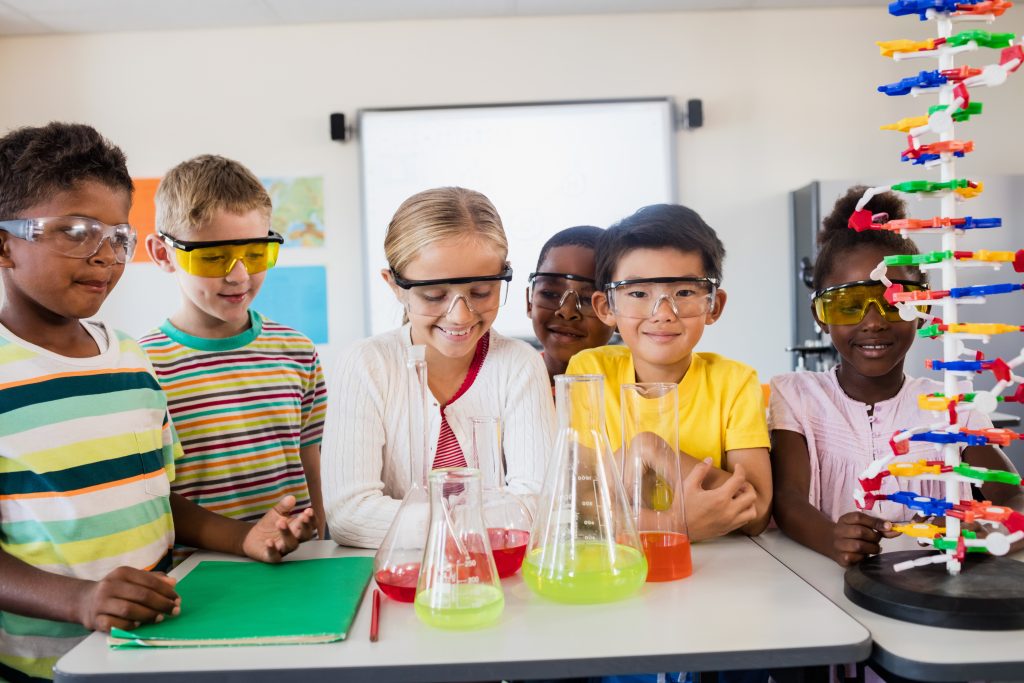Nature of Science (NOS) is one of the core components of science literacy and a fundamental element in most international curricular frameworks. NOS draws on science as a way of knowing as well as the values and assumptions inherent to the development of scientific knowledge. An understanding of NOS helps students to better understand science content and maintain a positive attitude towards the field.
What is the Nature of Science?

Equally important to learning science content is understanding the nature of science. The following aspects highlight the common tenets of NOS in science education discourse:
- There is no set scientific method.
Instead, a range of scientific approaches exist.
Think of science fields where conducting experiments is unlikely — such as astronomy or evolution.
- Science is tentative.
Science is revisionary and scientific knowledge changes over time. Informed decisions based on the best of knowledge today might change in the future. Knowledge changes with new data or when a new interpretation of existing data arises. The change might be complete (for example, the sun, not the earth, is at the center of the solar system) or partial (such as atomic theories).
Think of how our understanding of the coronavirus has progressed over time and how measures have been regularly updated based on new evidence. This will likely continue in the future as more research is conducted.
- Science involves creativity.
Creativity is not exclusive to art. Scientists ask questions about our world that lead to creative experiments and investigations. The process involves open-mindedness and the formulation of novel ways to explain the observed results.
Think of the mRNA (vaccine) technology.
- Science is embedded in social contexts.
Science is not exclusive to experts. The domain is not run exclusively by scientists but also by members of society. Science is affected by culture, moral values, economy, politics, and power structures. One cannot evaluate science in the media strictly from a science dimension. For instance, consider research that shares the disclosure of affiliations and funding. Furthermore, science is practiced in groups, whether they are small laboratory teams or larger groups of various subdisciplines.
Think of the vast amount of research done on cancer. It is one of the areas that most of the general public finds important. Think of the ice bucket challenge in 2014 to promote awareness of and raise donations for amyotrophic lateral sclerosis (ALS).
- Science is subjective.
Science is a human endeavor, and each scientist has a different way of thinking and a different perspective they use to come to conclusions. When scientists develop hypotheses, research questions, design investigations, and make inferences, they are affected by their prior knowledge, experiences, beliefs, and expectations.
Think of how research teams collaborate within the science community and how the process of peer-review minimizes subjectivity.
- Science is evidence-based.
Science is interpreted through a process of logical argument and informed by current theories. Ideas are subject to change when new evidence emerges. Interpretation of that evidence might also change. Judging the validity of evidence depends on the consensual agreement among scientists. Science does not deliver right or wrong answers. Knowledge is not proven; it is simply not falsified.
Think of how science is reported in the media during this pandemic. Media reports science-in-the-making where uncertainty is common; while established knowledge, concepts, theories, and laws (the heart pumps blood, DNA carries genetic information) are reserved to science books.
These aspects of NOS are interrelated. For example, the tentativeness of scientific knowledge stems from investigations conducted to obtain data and provide evidence. Each aspect of science is influenced by the culture and society in which the science is practiced, and also by the subjectivity and bias of the scientist. As new data are evaluated and existing data are reviewed, changes in inferences of existing scientific knowledge may occur.

Why is it Important to Teach Students NOS?
With the growing challenges affecting our society, students must develop their understanding of NOS. Understanding NOS allows students to become scientifically well-informed citizens. Students will be able to:
- Make sense of socio-scientific issues
- Critically evaluate science in the media
- Compare alternative perspectives and weigh the evidence when evaluating arguments
- Develop their science literacy skills
- Understand how new knowledge is developed, which consequentially places more confidence in the work of scientists
- Discuss the evolving nature of knowledge
- View scientific issues as subject to an ongoing inquiry
- Be skeptical towards potentially biased information
Teaching with and about NOS – What is the Role of Educators?
There is no agreed-upon ‘best’ way to teach NOS because several factors, such as the characteristics, aptitudes, and skills of students or available resources, may impact the selection of a specific approach. However, educational research suggests that NOS teaching must adopt an explicit approach with inquiry-based activities related to topics that resonate with students’ views about NOS. An explicit approach allows teachers to establish NOS as a goal of science learning and as an integrated component of science teaching into an already dense curriculum.
Teaching about NOS helps students develop an understanding of how scientific knowledge is generated and validated. Teaching with NOS depends on the teacher’s robust understanding of NOS. Teaching with NOS means developing a learning environment where students can experience an authentic scientific practice that bears some resemblance to the ways scientific communities validate knowledge.
Science teaching often follows ‘cookbook recipes’ where students apply specific instructions and produce a prescribed lab report that shows mastery of content. It is a one-shot process for students to present their findings. And there, the teacher is the final judge.

The alternative approach is teaching about and with NOS. Students work in groups on their investigations. They present and explain their findings before their peers. Students consider feedback and revise their analyses and conclusions. The teachers may provide students with opportunities to collect more data and participate in another cycle of sharing their learning with their peers. Differing results are open for discussion. Students can debate the best method to reach reliable results and can test each other’s methods or develop new ones.
What is science? What is the nature of scientific knowledge? Who are scientists? How do scientists work? What knowledge is considered to be scientific? Science educators have an important role in providing students with opportunities to explore such questions and develop informed conceptions of NOS. Authentic experiences that integrate aspects of NOS explicitly into science learning activities must be central to science education as a critical component of science literacy.
Special thanks to Northeast Ohio Regional Sewer District
Connect with Northeast Ohio Regional Sewer District on social media
- https://twitter.com/neorsd
- https://www.facebook.com/yoursewerdistrict
- https://www.youtube.com/user/neorsdccr
- https://www.instagram.com/neorsd/
- https://www.pinterest.com/wallywaterdrop/
- TIPS: Why you shouldn’t flush your meds (and what to do instead) – Northeast Ohio Regional Sewer District (neorsd.org)
- Cleveland STEP – Northeast Ohio Regional Sewer District (neorsd.org)
References
- Galili, Igal. 2019. “Towards a Refined Depiction of Nature of Science: Applications to Physics Education.” Science & Education 28 (3): 503–37. https://doi.org/10.1007/s11191-019-00042-4.
- Kruse, Jerrid, Isaiah Kent-Schneider, Sarah Voss, Kinsey Zacharski, and Molly Rockefeller. 2021. “Investigating Student Nature of Science Views as Reflections of Authentic Science: Degrees of Contextualisation and the Teachers’ Role.” Science & Education. https://doi.org/10.1007/s11191-021-00231-0.
- Mesci, Günkut, Renee S Schwartz, and Brandy Ann-Skjold Pleasants. 2020. “Enabling Factors of Preservice Science Teachers’ Pedagogical Content Knowledge for Nature of Science and Nature of Scientific Inquiry.” Science & Education 29 (2): 263–97. https://doi.org/10.1007/s11191-019-00090-w.
- Mohan Ashwin, and Kelly Gregory J. 2020. “Nature of Science and Nature of Scientists.” Science & Education 29 (5): 1097–1116. https://doi.org/10.1007/s11191-020-00158-y.
- Shi, Xiaoming. 2021. “Using Explicit Teaching of Philosophy to Promote Understanding of the Nature of Science; A Case Study from a Chinese High School.” Science & Education 30 (2): 409–32. https://doi.org/10.1007/s11191-020-00173-z.
- Yacoubian, Hagop A. 2021. “Students’ Views of Nature of Science; A Long-Term Study.” Science & Education 30 (2): 381–. https://doi.org/10.1007/s11191-020-00179-7.
- Yeh, Yi-Fen, Sibel Erduran, and Ying-Shao Hsu. 2019. “Investigating Coherence About Nature of Science in Science Curriculum Documents: Taiwan as a Case Study.” Science & Education 28 (3): 291–310. https://doi.org/10.1007/s11191-019-00053-1.
























